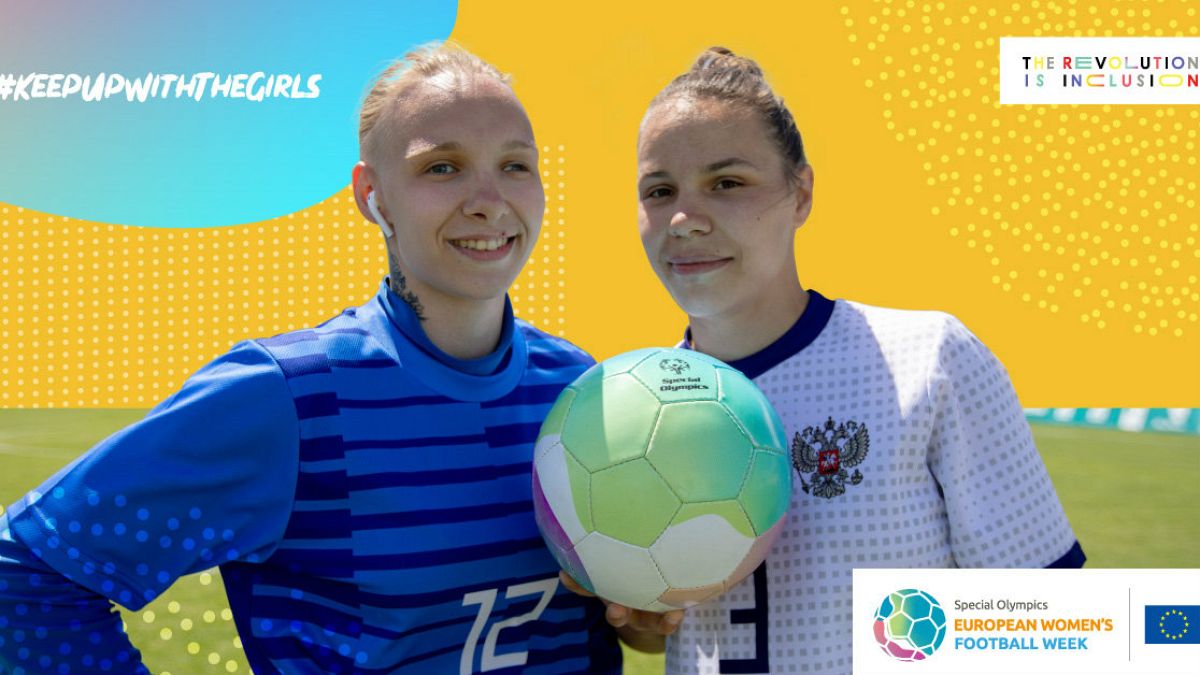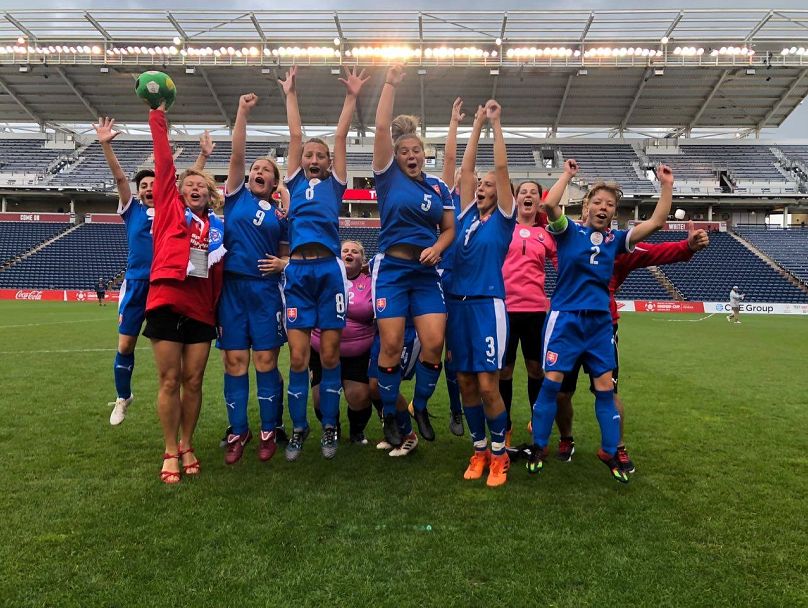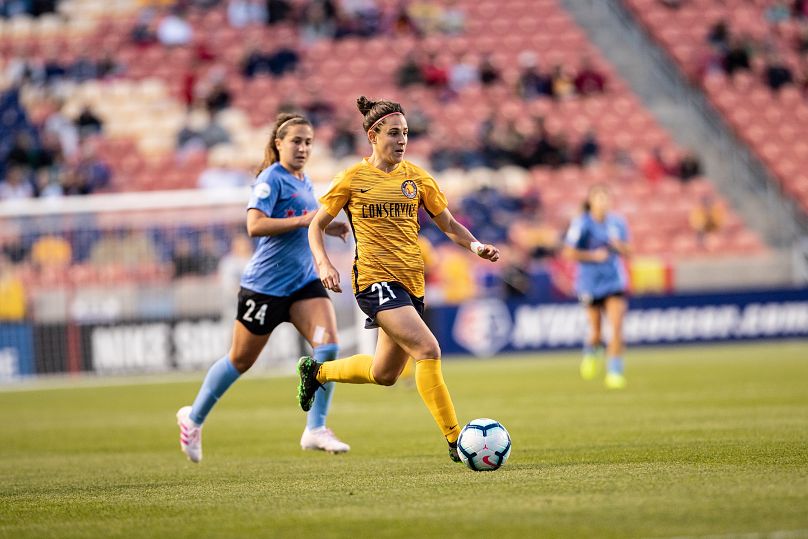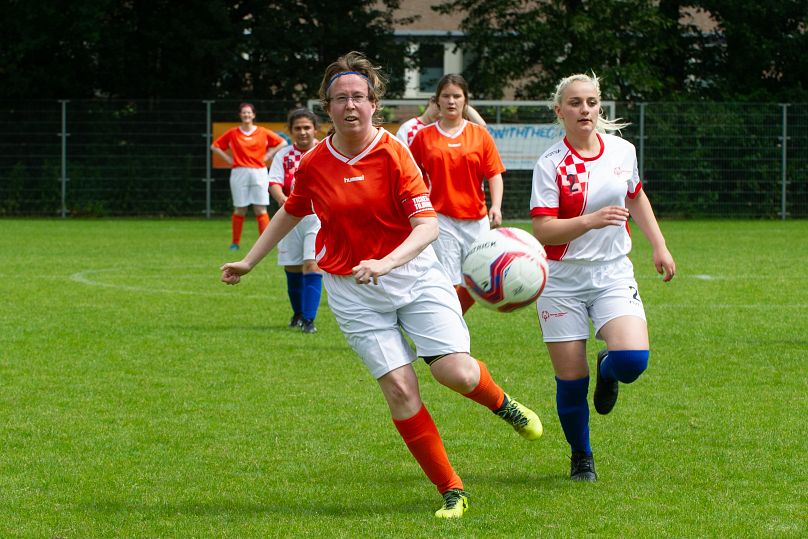Special Olympics has issued a clarion call for inclusion. As the organisation celebrates 50 years, it is calling for women and girls, both with and without intellectual disabilities, to pick up a ball and get out on the pitch together.
As the world’s largest sports organisation for children and adults with intellectual disabilities, Special Olympics is active in more than 190 countries globally.
On the back of a record-breaking FIFA Women’s World Cup, The ‘Keep Up With the Girls’ campaign, which is supported by the European Union’s Erasmus+ programme, is seeking to promote a ‘football for all’ message across 20 European countries.
“Football is a beautiful sport to play,” says Suzanne van den Einden-Brok, a 37-year-old Special Olympics Athlete Leader from the Netherlands. “Why can’t women and girls with intellectual disabilities play? They also deserve to enjoy football. We need to show people that football is not only for men and I want to be a part of that!” These sentiments are echoed by former Spain captain and FIFA legend Vero Boquete, who has keenly supported the campaign from the start, “I believe that every girl – no matter what ability – should have the opportunity to enjoy the beautiful game.”
And this is the overarching aim of ‘Keep Up With the Girls’ – a campaign to encourage women to reach their full potential, regardless of their abilities and backgrounds. As well as Vero Boquete, other stars from on and off the pitch lending support to the campaign include singer Nicole Scherzinger, supermodel and philanthropist Natalia Vodianova and legendary footballers Didier Drogba and Cafu.
Special Olympics has been championing equality, respect and opportunities for people with intellectual disabilities since 1968. It started as a summer camp for “children with nowhere to play” in the backyard of founder Eunice Kennedy Shriver, a sister of US President John F Kennedy.
Over the past 50 years, it has grown into a movement of inclusion that provides training and encouragement to millions of athletes worldwide. It includes 5.4 million athletes with intellectual disabilities globally, equipping them with the skills they need to participate in a vast range of sporting activities – such as the recent World Games in Abu Dhabi in March of this year.
Special Olympics is about more than sport competitions, however, and also runs a healthcare programme that aims to provide access to 11 million people with intellectual disabilities around the globe. When people with intellectual disabilities have access to health services, research shows that they also have more opportunities for education, employment, sports and other pathways to reach full participation in society.
But there is a lot more work to do to reach and positively impact the estimated 200 million people with intellectual disabilities around the world. People with intellectual disabilities remain one of the most vulnerable and marginalised population groups, and the extent to which they can become independent and excel at their chosen activities is widely underestimated. ‘Keep Up With the Girls’ is just one aspect of ‘The Revolution is Inclusion’, a global marketing campaign by Special Olympics that aims to tackle these issues by driving inclusion, empowerment and togetherness.
“We’re launching the campaign, led by our athletes, because despite progress, exclusion is still the reality for millions of people with intellectual disabilities in every aspect of their lives – from sports and health to education and leadership,” says Timothy Shriver, chairman of Special Olympics International.
Supporters of Special Olympics are encouraged to sign an inclusion pledge, in which they undertake to “Look out for the lonely, the isolated, the left out, the challenged and the bullied.” They are asked to tackle injustice and discrimination where they see it, but above all to make a commitment to help end the isolation that many people with intellectual disabilities can feel.
The hashtag #ChooseToInclude is at the centre of a social media campaign to spread the word and raise funds, and to reach out to those that most need our help. The campaign aims to encourage others to help those with intellectual disabilities to fulfil their potential, and above all to feel happy and confident in an inclusive society that ultimately benefits all.
Suzanne, who captained the Dutch team in a recent European football tournament organised by the Special Olympics, is just one example of those whose lives have been transformed by the movement. Fourteen years ago, she says, before she started playing football, she was “very shy”.
“And now I talk with people I don’t know. I hear a lot of people saying that I have grown a lot. And I hope other women and girls have this chance too.”
For more information, please visit: www.specialolympics.org



